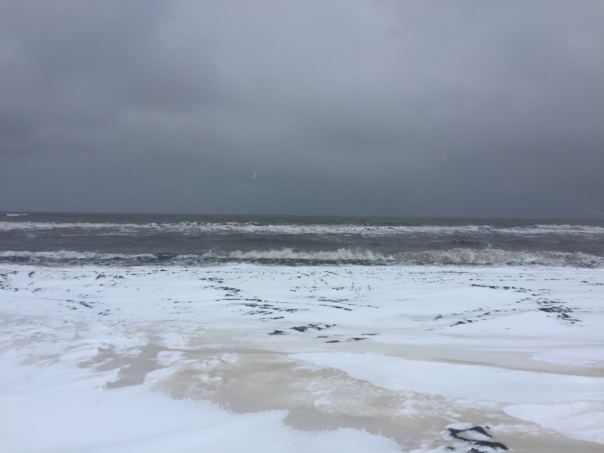
This time of year Billy Adams would expect to see sea ice lining Utqiagvik’s Chukchi Sea shoreline. But right now, it’s all open water.
“It was raining before Thanksgiving and then it rained again and it’s December,” Adams said.
Adams lives in Utqiagvik and is an observer for the Alaska Arctic Observatory & Knowledge Hub, a coalition of northern communities that shares data about sea ice, wildlife and coastal waters.
In past winters, Adams said the weather might warm up for a week before returning to below zero temperatures. But this year is different.
“The last few months have been very unusually warm and wet, and a lot of snow,” Adams said.
Temperatures in Utqiagvik broke 40 degrees on Monday, the highest ever recorded for the North Slope community in December. The unusual warm spell was driven in part by climate change, said climatologist Rick Thoman with the Alaska Center for Climate Assessment and Policy.
“The open water at this point the first week in December in the Chukchi Sea, that is a very clear climate change signal,” Thoman said.
The latest jump in temperatures stems from a combination of warm air and rain moving north from the Bering Sea, plus the lack of Arctic sea ice.
“That exposed water is basically acting as a heating pad, putting out that heat into the polar atmosphere,” he said.
Thoman said 40 degrees is the highest temperature recorded in Utqiagvik between October 30 and April 22 in more than a century of monitoring.
The North Slope has seen progressively warmer winters in recent years. As of yesterday, Thoman reported, ice coverage in the Chukchi Sea was the ninth lowest on record for the date.
Temperatures ranged in the upper 30s and low 40s across the North Slope Monday.
Adams said he’s concerned about what the spike could mean for caribou, an important subsistence animal. Warm weather tends to bring lots of snow, which he said makes it difficult for caribou to find food in the tundra.
“We have to keep an eye out in the next few weeks, next few months,” he said. “And we hope to see that animals are still around.”
A NOAA weather forecast shows temperatures in Utqiagvik are expected to drop into the teens and single digits by the end of the week.
[Sign up for Alaska Public Media’s daily newsletter to get our top stories delivered to your inbox.]
Kavitha George is Alaska Public Media’s climate change reporter. Reach her at kgeorge@alaskapublic.org. Read more about Kavitha here.





